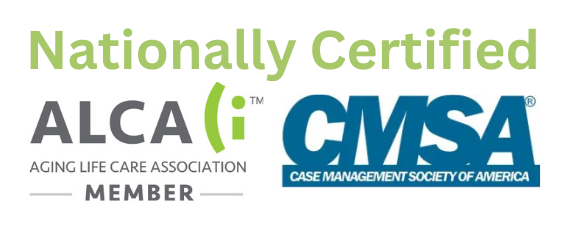People in the autumn or winter years of their lives are often advised to put together an “Advance Directive” (AD) with the help of their doctors and attorneys. This documentation relates to specifics of their medical care, wishes, and acceptable interventions, should they become incapacitated.
As people become more aware of the possible consequences of dementia, some are wondering if the current boilerplate language found in most of these documents are suitable for those who find themselves or their loved ones walking this complex and distressing path.
Advance Directive
Currently, most Standard AD documentation focuses on more permanent catatonic or vegetative states, or coma. More often than not, the documents refer to a hospice-qualified patient whose estimated prognosis, according to their doctors, is six months, or less.
The goal of these documents is to designate a medical decision-maker who should direct their care, should the patient become incapacitated.
Unfortunately, the vagueness and limitations of this formulaic approach leave a lot of open questions for someone living with dementia. Because the onset of dementia is usually gradual, and sometimes difficult to detect, pinpointing the exact point at which the patient is no longer capable of directing his or her care, can be very difficult for doctors or loved ones.
Beyond that, in the early stages of the disease, a relatively high quality of life may be sustained for years. In the advanced stages of neurodegenerative disease, however, patients can be unresponsive and immobile, experiencing very little in the way of life’s joys and pleasures.
The problem for planning your own care is that by the time you are in this state, you are unable to adjust any directive previously put in place. The documentation may call for interventions or life-support that seemed like a good idea at earlier stages of the condition.
If a patient has a change of heart as their condition progresses, they may be unable to communicate this, and may already have been disempowered from doing so, by an existing directive.
Dementia-Specific Directive
Dementia-related illnesses occur at a much higher rate in seniors than actual catatonia. Some studies conservatively estimate the lifetime risk of suffering from dementia for those 65 and over is 10.9% in men and 12% in women. Others rate the risk to be much higher: a whopping 30.8% for men and 37.4% for women age 70 or over, giving a collective risk that is potentially about 1 in 3.
Experts are asking if the focus of the existing standard AD is adequate to meet the needs of this staggering number of people living with dementia.
Dr. Barak Gaster is an internist at the University of Washington School of Medicine. He worked for some years alongside geriatric and palliative care providers, neurologists, and psychiatrists to develop what he sees as the answer to this question. His Advance Directive for Dementia explicitly addresses the inadequacies of the current Standard AD forms.
The Dementia AD offers opportunities for patients to specify their desired levels of care at different stages of their dementia-related illness.
The options, while more comprehensive than any standard AD, are still relatively simple. A patient can choose from four levels of care, ranging from “full efforts to prolong life” to “comfort-oriented care only,” and apply those particulars to the three stages of progression.
Patients can also specify their desires for such particulars as opting out of lifesaving treatments in case of cardiac arrest or cessation of breathing. They may also state that they do not wish to be hospitalized.
Additional Support
While this directive can significantly ease the burden on families who are caring for a loved one with dementia, communication with geriatric care providers throughout the decline is key to truly understanding the desires of patients who may are unable to speak for themselves.
Keeping the documentation up-to-date is also crucial to managing this process. For example, ensuring that the patient’s designated proxy person is still living, and still willing and able to engage in the decision-making process required, is essential.
With dementia being an unfortunate likelihood for up to one in three people, any end-of-life care documentation that a person puts together should unquestionably include provisions for managing dementia.
If you would like to speak to one of our Senior Care Managers, please contact us today.






